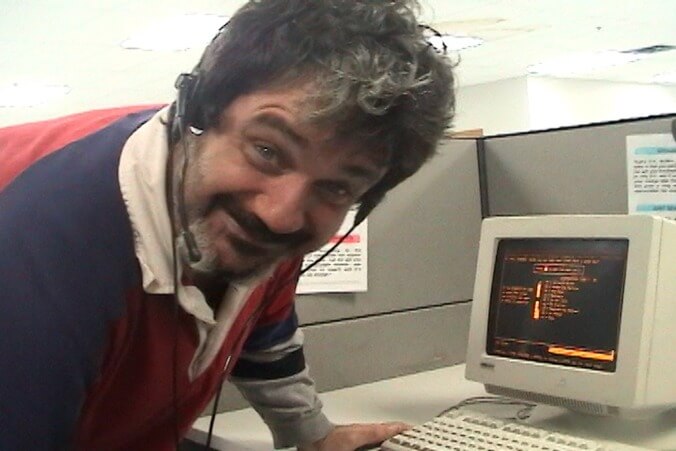HBO’s Telemarketers is this year's most inspiring and hilarious exposé
The three-part docuseries—executive produced by Danny McBride and the Safdie brothers—is a true-crime wonder brimming with amateur charm

Surviving at the nexus of seemingly every homegrown American problem, including opioid addiction, charity fraud, and predatory capitalism, HBO’s Telemarketers shrugs its shoulders at the deluge of cheap and easy true-crime documentaries that flooded streamers over the last decade. Executive produced by Danny McBride and Josh and Benny Safdie, Telemarketers, which ended its three-episode run on August 27, turns their knack for casting McDonald’s patrons using free WiFi into a three-part documentary wonder, putting the camera in the hands of the working-class obsessives that typically populate the edges of their work. Co-director Sam Lipman-Stern, who shares duties with his cousin-in-law, Adam Bhala Lough, and lead investigator Patrick Pespas aren’t John Oliver or Michael Moore, but their amateur charm and naive bravery create something even more rewarding: a passionate example of citizen journalism at its very best.
Unlike Class Action Park or LuLaRich, which take a professional view of various scams and amusement-park controversies, Telemarketers is an evolving project for Lipman-Stern, who entered the telemarketing firm Civic Development Group as a teenage high-school dropout. Readers probably recognize CDG without even knowing the name. These are the cop-sounding callers “fundraising on behalf” of organizations like the Fraternal Order Of Police that hound people for money, though most of it never leaves the call center.
CDG was a place that, as Pespas says, would hire anyone who could pronounce “benevolent.” Set in the post-apocalyptic office parks of New Brunswick, New Jersey, Lipman-Stern began filming the mayhem of CDG’s offices in the mid-2000s as a teen. He should not have been there. The callers were comprised of the formerly incarcerated, active drug addicts, high-school dropouts, and anyone desperate enough to separate old ladies from their social security stipends (in other words, a large swath of American labor deemed unemployable). Acting on behalf of the police, or so they carefully say, CDG gave its staff free rein to turn the office into the Thunder Dome as long as calls were made. That’s how Sam met his best friend Pat.
Introduced as a “telemarketing legend,” the early scenes of Pat Pespas are as heartbreaking as they are hilarious. Sam’s camera gazes on Pat as he takes a nose full of heroin, and Pat gazes back through his high, saying with a smirk, “Now we smash the list.” The non-judgmental eyes of Pat’s CDG cohorts make these scenes powerful, with the series accumulating a steady current of empathy for callers that made dinner time hell for those on the list.
 Keep scrolling for more great stories.
Keep scrolling for more great stories.
